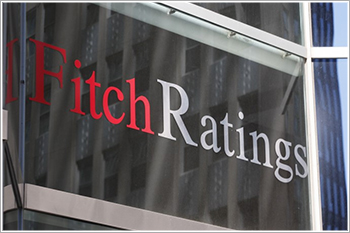
Fitch Ratings has affirmed Oil India Limited’s (OIL) Long-Term Foreign-Currency Issuer Default Rating (IDR), senior unsecured rating and the rating on its outstanding senior unsecured bond at ‘BBB-‘. Fitch has also affirmed the Long-Term Foreign-Currency IDR of OIL’s subsidiary, Oil India International Pte. Ltd. (OIIPL), and the rating on its US-dollar senior unsecured notes at ‘BBB-‘.
The Outlook is Negative, reflecting that on the Indian sovereign (BBB-/Negative).
“We have maintained OIL’s Standalone Credit Profile (SCP) at ‘bb+’, which reflects competitive lifting costs and low finding and development costs, balanced by its geographically concentrated operation and smaller scale than similarly rated peers. The improved diversification from OIL’s increased stake of 70% in Numaligarh Refinery Limited (NRL), which has strong downstream operations, is offset by our expectation of a weakening of OIL’s financial profile due to capex for the refinery’s expansion and associated execution risks,” Fitch Ratings says.
OIL’s IDR benefits from a one-notch uplift from the SCP due to its ‘Strong’ state linkages and the government’s incentive to provide support under our Government-Related Entities (GRE) Rating Criteria.
Capex to Drive Up Leverage: We expect higher leverage, measured by net debt/EBITDA, as OIL’s capex intensity substantially increases through to the financial year ending March 2025 (FY25). NRL estimates capex of about INR280 billion to triple its refinery capacity to 9 million metric tonnes (MMT) a year. This will further add to OIL’s already high capex for exploration and development of oil blocks that it won in auctions and need to be completed within mandated timelines.
We forecast leverage will reach around 3.0x in FY24 (FY22e: less than 2x; FY21: 2.6x) and breach our negative rating sensitivity of 3.0x in FY25. Nevertheless, the increase should be temporary, with leverage falling below 3.0x in FY26 and continuing to decline, supported by cash flow from the expanded refining capacity. OIL expects excise duty benefits to be extended to NRL’s expanded capacity, further boosting its strong operating cash flows, which are key to our deleveraging expectations.
Medium-Term Integration Benefits: We believe OIL’s business profile will benefit in the medium-term from the downstream integration of NRL, once project execution risk has eased. The elevated execution risk for the refinery expansion limits near-term benefits from downstream integration. We assess the execution risks as higher than for other brownfield refinery expansions due to the remote location of the refinery and larger supporting infrastructure investment.
‘Strong’ State Linkages: We assess OIL’s status, ownership and control by the sovereign as ‘Strong’. The state directly owns 56.66% of the company and appoints its chairman, managing director, board representatives and independent directors. This enables the government to exert control over OIL and implement its socio-economic objectives related to the oil and gas industry. OIL has not received tangible financial support from the government due to its adequate financial profile, although it has received indirect support in sourcing acquisitions.
‘Strong’ Incentive for State Support: We assess the financial implications of a default as ‘Strong’, as we regard OIL as a key GRE and believe its default would significantly affect the availability and cost of domestic and foreign financing options for the state and other GREs. However, we assess the socio-political implications as ‘Moderate’ in light of OIL’s small size; it contributes less than 10% to India’s crude oil production.
Russian Sanctions; Evolving Crisis: We believe recent global geopolitical developments, particularly Russia’s invasion of Ukraine and the subsequent sanctions applied to Russia, may disrupt the receipt of dividends from OIL’s Russian investments in the short term. We do not expect this to significantly impact OIL’s SCP, but will continue to monitor the crisis as it evolves.
Robust Operating Profile Supports SCP: OIL’s SCP reflects the low-cost position of its upstream operation and efficient downstream presence via NRL, and is balanced by its smaller scale relative to similarly rated peers.
OIL’s upstream operating profile benefits from lifting costs of around USD13-14/barrel (bbl) and finding and development cost of around USD6.0-6.5/bbl, about 40%-50% lower than that of global peers. NRL also maintains stable operations, with a 90% utilisation rate in FY21 despite the Covid-19 pandemic, and a gross refining margin of around USD37/bbl, including excise duty benefits.
OIIPL’s Rating Equalised With OIL: We equalise OIIPL’s rating with that of its parent, OIL, due to our assessment of OIL’s ‘High’ legal incentive and ‘Medium’ strategic and operational incentives to provide support to its subsidiary under our Parent and Subsidiary Linkage Rating Criteria. OIL guarantees all of OIIPL’s debt, oversees its operation and appoints its management.
Related Tags

![]() IIFL Customer Care Number
IIFL Customer Care Number
(Gold/NCD/NBFC/Insurance/NPS)
1860-267-3000 / 7039-050-000
![]() IIFL Capital Services Support WhatsApp Number
IIFL Capital Services Support WhatsApp Number
+91 9892691696
IIFL Capital Services Limited - Stock Broker SEBI Regn. No: INZ000164132, PMS SEBI Regn. No: INP000002213,IA SEBI Regn. No: INA000000623, SEBI RA Regn. No: INH000000248, DP SEBI Reg. No. IN-DP-185-2016, BSE Enlistment Number (RA): 5016
ARN NO : 47791 (AMFI Registered Mutual Fund & Specialized Investment Fund Distributor), PFRDA Reg. No. PoP 20092018

This Certificate Demonstrates That IIFL As An Organization Has Defined And Put In Place Best-Practice Information Security Processes.